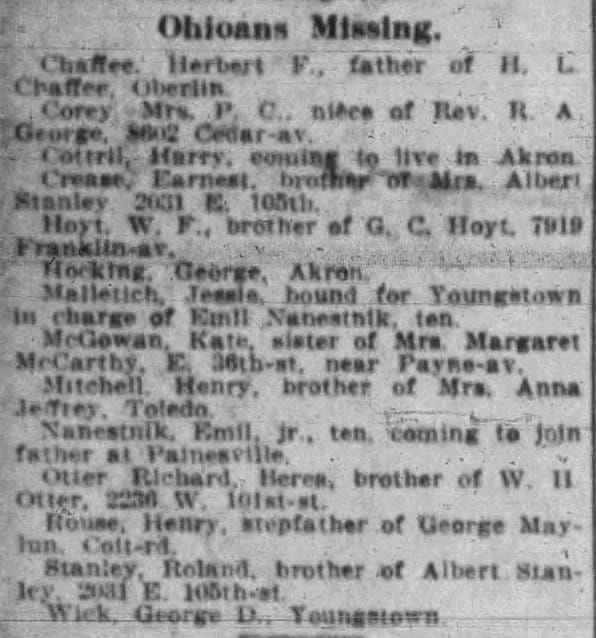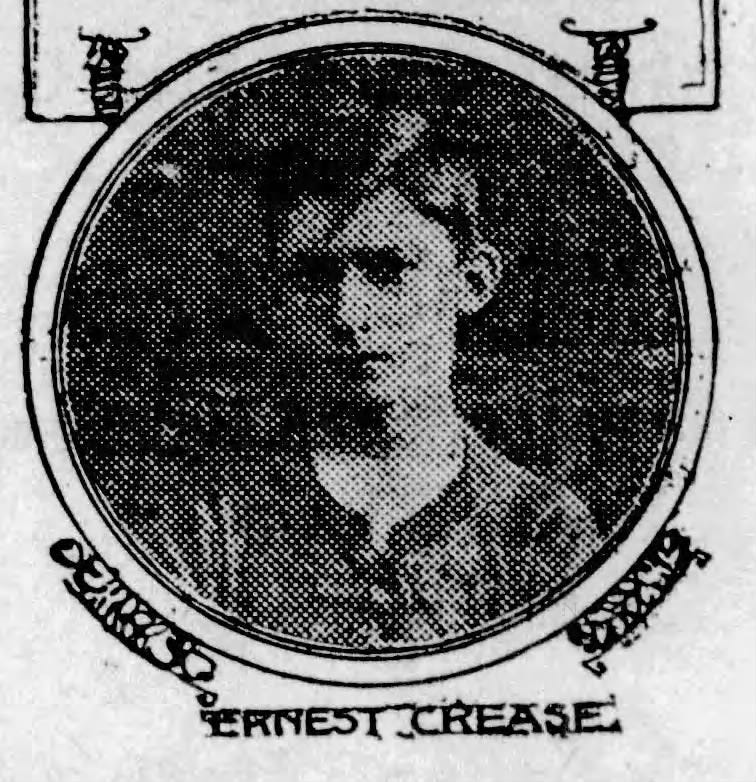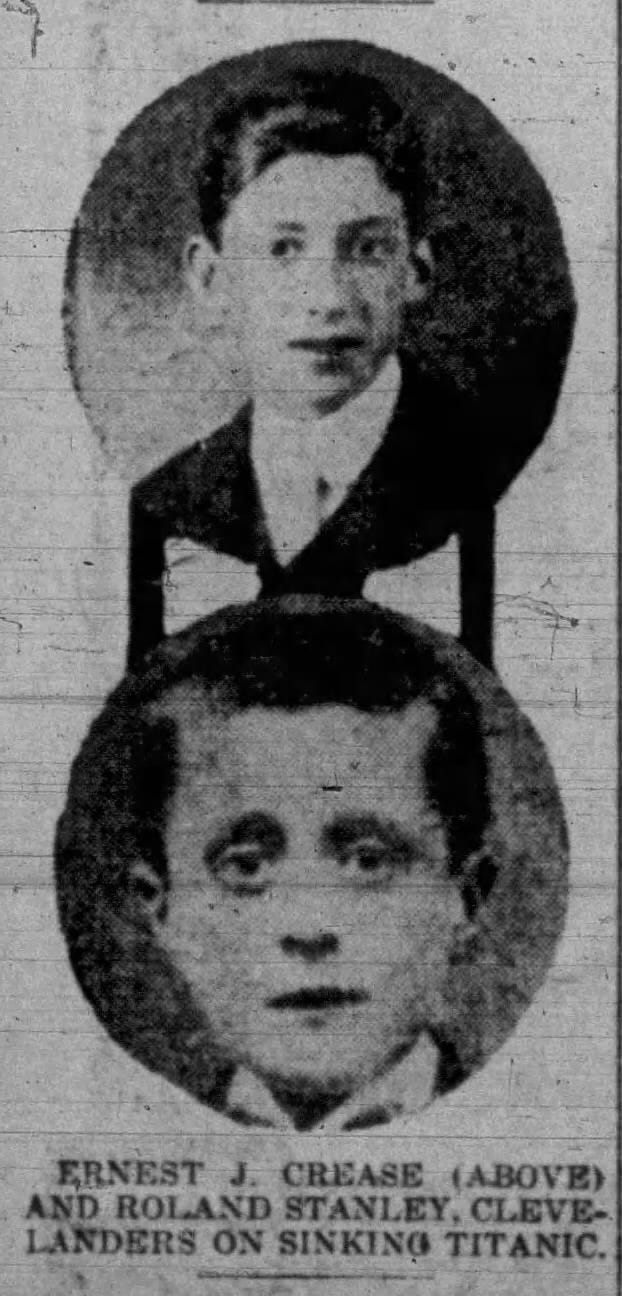For April, I am focusing on my interest in the Titanic, as this is the month the ship sank in 1912. I am one of the many enthusiasts who got pulled into the subject in my teenage years due to the release of the popular James Cameron film Titanic in 1997. Over the past few years, my interest has expanded since finding the Titanic Book Club, a community that discusses books written on the topic. I now assist my friend Jill in writing the newsletter for the club each month.
Instead of focusing on my own interest, I will discuss a few reasons why even if you are not presently interested in Titanic, you might enjoy learning a little more about some of the stories this month:
Learning about history through a unique lens: When you begin to read about Titanic and the individuals onboard, you begin to learn about all sorts of different pieces of history occurring in 1912, as well as before and after that date. As an example, I recently read a little more of the series Archie, written by my favorite Titanic author George Behe, about the Titanic passenger Major Archibald Butt who served as a military aide to both presidents Theodore Roosevelt and William Howard Taft. An anecdote that intrigued me was that while Taft and Butt were Christmas shopping in Washington D.C. in 1909, with only two Secret Service agents trailing behind them, a citizen approached the jovial Taft in a bookstore to shake his hand and Butt punched the man in the stomach while whispering under his breath that he was a fool. Taft saw that something had occurred but was not sure exactly what it was. He asked Butt when they left the store what had happened and Butt in his response omitted his act of punching the person saying that he simply told the citizen not to shake his hand as he would have to then shake hands with everyone.
Discovering secondary interests: Some of the stories you will run across when learning about the Titanic can lead to completely different interests in other aspects of history. For example, both of the series I have written on The Silent Sod, Presidential Picks and Mischief on the Ocean Liners, began with my interest in the Titanic.
Meeting other Titanic enthusiasts: Once you get to know the topic, you want to talk about it with others, and you learn that there are many communities that offer a place to do so. Whether it be a Facebook group or a forum on the website Encyclopedia Titanica, the discussions are plentiful.
One of my favorite subsets of books about the Titanic is the kind that look at a specific group of people aboard the ship and provide more information about their story. A few of my favorites of this type have been Titanic: Her Books and Bibliophiles by George Behe, The Jews of the Titanic by Eli Moskowitz, and The Addergoole Titanic Story by Pauline Barrett. One is coming out later this month which I have already pre-ordered about the story of Chinese survivors aboard the Titanic called The Six by Steven Schwankert.
For the month of April, I would like to share with you a few stories of American born third class passengers aboard the Titanic. I originally became interested in this when I learned the story of a man from my hometown of Cincinnati, Ohio, named Anthony (Tony) Abbing. When you think of the story of most third class passengers on the Titanic, you think of one of immigration from Europe to America. I thought it would be interesting to learn more stories of American born third class passengers: why they left America, what their journey overseas was like, what brought them back to America and what happened to them in the aftermath of the sinking. This month I will share a few of their stories.
Ernest James Crease
Ernest James Crease was born April 10, 1892, in Cuyahoga County, Ohio. Crease’s family was originally from England, and in the early 1900’s, he moved to England from America with his parents. His father worked in England as a tobacco factory laborer.1

Crease had four living siblings, one who passed away in infancy. His oldest sister Jessie ended up living in Cleveland, Ohio, and Crease’s brother in law Albert Stanley asked Crease to accompany his brother Roland Edwin Stanley, who was twenty-two years old at the time, to America.2 Crease was twenty at the time of his sailing on the Titanic.
Boarding the Titanic
Two short notes were mailed by Roland Stanley to his sister Nora giving a brief account of their boarding the Titanic.
"Dear Nora: I am sailing by this ship today-going out to Albert. Don't upset yourself. I shall be all right.-ROLAND
The second card, mailed from Queenstown, read: 'I am sorry I did not have time to come see you before I left. I have Albert's wife's brother with me. I am enjoying myself on the boat. It is beautiful. I will write you at the end of my journey.-ROLAND3
The two young men met for the first time aboard the Titanic according to the Cleveland Leader.
The aftermath

Sadly, both Crease and Stanley died in the sinking and neither of their bodies were recovered.
I was unable to find a cenotaph that was built in either of their names. According to the 1920 census, a son of Jessie and Albert Stanley named Roland was born in 1920.
An article of the Cleveland Leader dated April 23, 1912, makes note that the epitaph for Ernest Crease would read, “when the son of God puts forth his hand, be prepared”, which was written in his handwriting on a postcard received by his sister Jessie from him after the news of the sinking. The postcard had a picture of a Bible, a crown and a lifeboat on it. This was the last word the family received from either of the two.4
https://www.encyclopedia-titanica.org/titanic-victim/ernest-james-crease.html
https://www.encyclopedia-titanica.org/titanic-victim/edward-roland-stanley.html
"Boys Sunk With Ship Last Messages Tell, Sister Writes Clevelander that Roland Stanley Sent Card From Titanic Soon After Sailing; Youth's Photographs Forwarded Here", The Cleveland Leader, April 26, 1912
“When God Puts Forth Hand, Be Prepared, Ernest Crease Wrote”, The Cleveland Leader, April 23, 1912







Rip to both sweet young men.
This was truly an interesting read. It’s good to be reminded that everyday individual lives were altered either by death or by loss when Titanic sank.